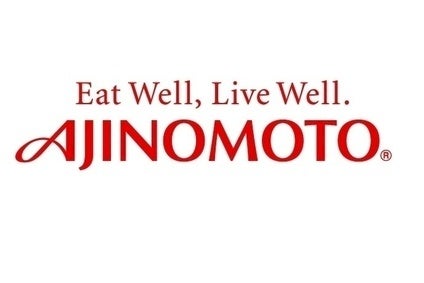Japanese food maker Ajinomoto is said to be interested in acquiring the Splenda sucralose business from UK food ingredients group Tate & Lyle plc. While Splenda has seen sales and profits hit by heightened global competition, the business nevertheless represents a good fit for Ajinomoto's own ingredients arm, which includes artificial sweetener aspartame. Katy Askew reports.
Ajinomoto, like other Japan-based food makers, is struggling with weak domestic consumption. While GDP figures released last month revealed the country struggled out of recession in the fourth quarter, the overall picture remains sluggish and consumer spending continues to be subdued by an 8% consumption tax. This picture is compounded by long-term structural issues arising from Japan's ageing and declining population.
Ajinomoto is therefore expanding its horizons and looking to overseas markets to fuel growth. The ingredients-to-consumer foods firm aims to become a "global group of food companies centred on the world's number one seasoning business" and a global top-ten food company.
"We will increase operating income from today's JPY62bn (6.1%) to JPY91bn (8%) in FY2016, and then to JPY150bn (10%) after FY2020," management forecasts in its medium-term business plan, which runs to 2016.
The early indicators are this strategy is paying off. In its most recent financial update for the nine months to the end of December, Ajinomoto said overseas growth allowed it to shrug off declining profits at home and report a 6% rise in operating income. Japanese operating profit fell 13.5% in the period but overseas food earnings jumped by more than one quarter.
The group intends to accelerate growth through two levers: international expansion and R&D.

US Tariffs are shifting - will you react or anticipate?
Don’t let policy changes catch you off guard. Stay proactive with real-time data and expert analysis.
By GlobalDataMost recently, Ajinomoto completed the acquisition of Windsor Quality Holdings, a US-based ethnic frozen food company. However, Ajinomoto's move to realign its North American business operations in the wake of the deal suggest the company is eyeing international growth across its portfolio of consumer-facing foods and ingredients and its umami flavourings business has been a key contributor to international sales growth.
Announcing the realignment in North America, Ajinomoto said: "Ajinomoto Co. will continue to enhance its high-value-added product development capabilities by applying its world-leading amino acid technologies and the Ajinomoto Group’s original materials and application technologies for foods, and strengthen its ability to make proposals in the "wellness and nutrition" business field in North America."
Given this agenda, rumours Ajinomoto could be eyeing an acquisition of Tate & Lyle's Splenda business make a lot of sense.
Tate & Lyle said last week it continues to evaluate how to maximise the returns of its Splenda business, which has seen profits squeezed by lower global sweetener pricing amid heightened competition. This problem has been exasperated by supply chain issues and a shut-down of a production facility in Singapore. The company is understood to favour restructuring to optimise operations and boost profits – but a sale has not been ruled out.
According to a report in UK newspaper The Telegraph, Ajinomoto is interested taking on the Splenda business but has yet to approach Tate & Lyle board.
A deal would broaden Ajinomoto's offering in the health and wellness ingredients sector. The artificial sweetener sector is growing on the back of higher demand for sugar alternatives and growing awareness of the causal role that sugar consumption plays in dietary health problems such as obesity and diabetes.
As Tate & Lyle noted in its six-month trading update: "Sucralose is a highly functional and widely used ingredient, and continues to be incorporated in more new product launches than any other high intensity sweetener."
The Splenda business also benefits from a substantial international footprint, with sales in Asia, Europe and the Middle East and the Americas. According to Tate & Lyle, Splenda is used in 5,000 products in over 80 countries. In the US alone the "Sweetened with Splenda Brand" logo features on 1,700 products that are purchased by "over 80m households" every year. Clearly, Splenda ticks the box when it comes to Ajinomoto's international expansion drive.
In the ingredients sphere, Ajinomoto believes it can add value through technological know-how. The company, founded on the principles of umami flavouring more than 100 years ago, offers aspartame as its main artificial sweetener to the market. Sucralose-based Splenda would broaden Ajinomoto's range and strengthen its technological capabilities in the production of sugar alternatives.
If Ajinomoto were to take on Splenda, it would still find itself grappling with downward pricing pressure due to the continued proliferation of cheaper, largely Chinese-made, alternatives. It is likely the food giant would utilise a tactic that has been widely employed by Japanese food companies to fend off competition from the country's neighbour across the East China Sea. That is, to focus on the quality credentials of Japanese food makers in general and its brands in particular. By expanding its range, Ajinomoto can prove its value as a partner providing a wider array of solutions to consumer-facing food corporations.
If Ajinomoto is unable to obtain the Splenda ingredients business from Tate & Lyle, the firm could well go after the consumer rights to the brand, which are controlled by Johnson & Johnson. In December, the US consumer goods group hired Goldman Sachs to explore a separate sale of its Splenda brand.
Given the strategic fit for Ajinomoto – and the possibility that both the consumer brand and ingredients side of Splenda could be on the block – it should not come as much of a shock if we hear more on this in the weeks and months to come.





